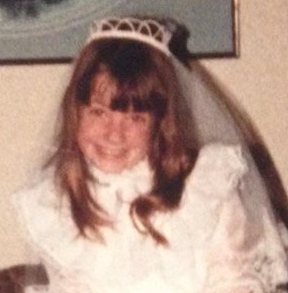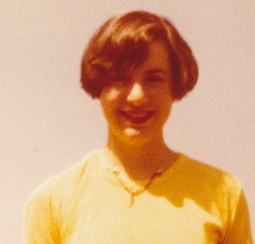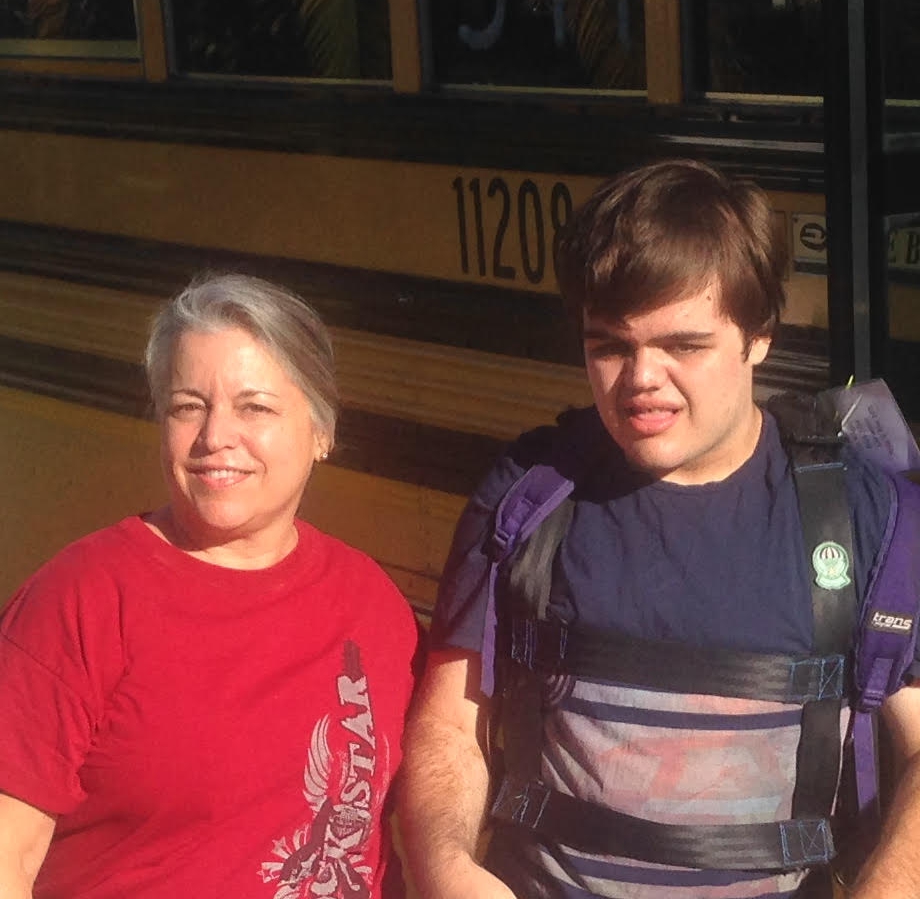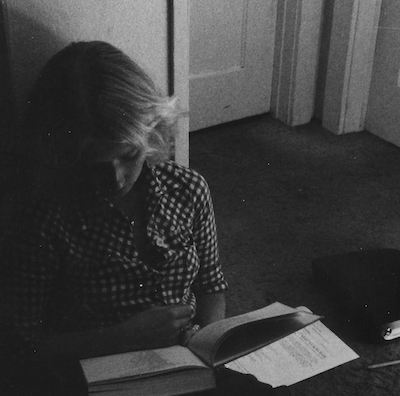I don’t even remember driving here. The trip from Athens to Atlanta is a blur of faded memories and second guesses. I step out of my car and tuck my hair behind one ear. I know only that I’m where she told me to be: Shepherd Spinal Clinic. The last words of our conversation repeat in my head, and I say them over to myself until I believe I’m not overstepping.
“He asked for you.”
I’ve never met Tucker’s sister, but she called two days ago because her brother couldn’t.
“There was an accident,” she said, but gave few details.
My knees shake as I approach the massive fortress that is the hospital, and I wonder why, after two years and a near-death experience, he thought of me?
I walk into the white lobby with its white floors, white walls. “May I help you?” The nurse behind the counter asks.
I stand silent for a moment, just long enough for her to wonder if I’m visiting a patient, or if I’m one of those people roaming the hospital corridors for fun.
“Yes,” I squeak, clearing my throat and mustering my voice from who knows where. “I’m uh, here to see Tucker Simmons,” my voice rising to a question. As if I don’t already know he’s here on the fourth floor in the ICU wing.
“Haley?” a voice calls from the echoing lobby, and it takes me a moment of frantic searching before I locate the voice. She must have heard me say his name.
Tucker’s sister crosses the lobby floor, and we hug, though she doesn’t know me. She looks so much like her brother. “I’m so sorry,” I say as I pull back, my hands still resting on her shoulders.
She glances down to the floor and releases a deep breath. Her silent reply is perfectly polished. She’s likely heard these words many times from many different people.
“I’m glad you came,” she says.
It was never a question for me. Sure, it’s the middle of midterms, and I just started a new job, but there was never any doubt in my mind that I’d come. I just hadn’t worked through what I should do when I got here.
“How is he?” I ask, though it suddenly sounds stupid. He’s in a hospital for Christ’s sake.
“He’s okay. He has good days and bad.” Her face is kind, but she must think I’m an idiot for asking. “He likes having visitors. It makes the days more eventful.”
The accident happened a few weeks ago, but she said he was in a coma the first three days. He started communicating last week, and my name came up. No extraordinary moment, no pageantry: just Haley.
Tucker and I grew up together. We saw each other at school almost every day between sixth grade and high school graduation, but not a single day after. We went to different colleges and stayed in touch, but it wasn’t the same. He taught sailing lessons off the Georgia coast, and I joined a glee club. We lived in different worlds now, never more than childhood crushes, so why is he asking for me?
I follow his sister to the elevator, aching to break the silence. “And how are you? How’s the family?”
This has been asked of her too, and she’s prepared to reply without even looking sad. “Mom’s having a really hard time, but that’s normal.”
She doesn’t answer the question about herself, but I don’t press it.
“What happened?” I ask, not sure if it’s impolite. When someone nearly dies, the usual social cues and courtesies go out the window, but I still wonder if I’m asking too many questions.
She begins updating me on his condition, using words like boating accident, dove into the water, and C6 vertebra. I comprehend only pieces as she presses a button and the elevator starts to climb. Her brother drowned; his fine motor skills never fully returned; something’s wrong with his lungs. The rest of her words swim around in my head, just out of reach.
“He’s paralyzed,” she finishes.
“What do you mean?” She never said any of this over the phone.
“I wanted to wait and tell you in person.” She sighs. “I just wanted to see if maybe… he got better.”
I have no words. Tucker can’t be paralyzed. He’s twenty years old. Nothing bad ever happens when you’re twenty. I sit in my denial until I’m shoved back to the present by the rhythmic ding that signals the passing of each floor. We’re still in the cold, metal box, but I don’t feel ready anymore. I want to tell her I changed my mind and that I don’t want to be here after all, but I can’t move my mouth. I can barely breathe.
But what right do I have to be nervous, panicked, grief-stricken, or any of the above? I haven’t seen him since graduation. This is his sister. She has a right to grieve what was lost, and she’s still holding it together. Who was I to him?
I thwart my stomach’s attempt to escape my body while my mind refuses to compute. This paralyzed boy can’t be the same boy I knew. The boy I knew was the star of the high school baseball team, but he never let it go to his head. My mom drove me to games so I could cheer him on from the stands. The boy I knew was the best dancer at prom. We danced until his hair was matted with sweat, but he didn’t mind. He was never anyone but his genuine self, not caring what people thought of him. Authenticity is so rare to find in a person, let alone a teenage boy. It was the most refreshing thing about him.
I was nothing like Tucker, and perhaps that’s why I was drawn to him. At school, I was shy, full of nerves and self doubt, but Tucker seemed to always know who he was, and I envied that about him. He never doubted, or questioned; he just dove. It sickens me to think the best qualities of him are what brought him here.
The elevator doors open. She steps out into the hall and waits for me to follow. I make it out just as the doors close.
“I want to prepare you. He’s pretty banged up given… everything, but we’re very hopeful.”
He almost died. He dove from a boat, broke his neck on a hidden sandbar, and drowned in the ocean. If his girlfriend hadn’t been there, or hadn’t known CPR, he would be dead. He can’t move from the waist down. How is she hopeful?
I want to scream all of this at her, but I don’t. Instead, I try to reverse my maladaptive thinking, and remember who she’s talking about. This is Tucker Simmons, the boy who mouthed off to our middle school science teacher because she was incorrect, the boy who did time in juvy for smoking pot at school. I’d bet money that he didn’t accept death just so he could tell it to piss off.
“He can’t speak because of the ventilator, so he’ll have to use the whiteboard to respond,” she says. “He can still move his arms and chest, but everything else…”
I’m mentally gone again. Self-preservation maybe. She slows pace and my throat tightens. Maybe I shouldn’t have come. Regret threatens to seep out of me like the sweat on my forehead, but something holds it back.
“We’re here. I’ll give you two a minute.” She turns to leave.
“Thank you,” I say as she turns back to me. “For reaching out. I had no idea–”
“We didn’t tell many people.” She waits like she’s deciding whether or not to say more. “He’s on a lot of pain killers, but I do know he wanted to see you. He was adamant about that.”
She’s gone before I can say anything further. My stomach is in knots, and I feel a flush crawling up my neck.
I stand in the silent doorway, take a breath. Somehow I know I can do this because I’ve done it before. I feel confident, comfortable even. That feeling of regret is second only to familiarity. I remember this place. I know these people, these machines, and the art of talking to someone who cannot. This is no different just because it’s a friend and not a grandparent. There’s a lingering odor of cold hospital food and bedpans. I see the nurses looking at their feet as they walk, always on a mission. I hear familiar beeps and chirps and hums emanating from various rooms. It’s quiet and bustling all at once. No one speaks, but there’s noise.
This room looks and smells the same as the others I’ve been in. It even has the same plastic plants posted by the windows. I guess the ficus in the corner is supposed to take the edge off the otherwise cold, sterile room. The plants rarely work though, and only for those not hardened to this homecoming. They just collect dust, and remind you your loved one is in here and not out there.
I recognize the pull-out bed disguised as an armchair. I slept in a similar model for a weekend when I was seventeen. I remember the plinking sound as I cried onto the bed’s plastic cover. Night was the only time nobody noticed. That was the fourth and final time my grandmother was diagnosed with breast cancer. Of course by the fourth time, it’s become more than just one kind of cancer.
A seizure made her brain swell, so we took turns staying with her overnight. Just in case. My mother never told me that was why, but I knew. I would wake in the night, terror gripping my chest. I’d rush to her bedside to make sure she was still breathing, even though the machines would’ve told me first. Then I’d exhale quietly so as not to wake her.
She slept a lot, but sleeping meant healing. That’s what the doctors said, anyway. I remember how she would cry when she meant to laugh, and laugh when she meant to cry. When her hands trembled uncontrollably, I’d put the straw to her lips and help her drink the Ensure. We both knew it was disgusting, and she would cry, but I knew what she meant.
I remember the horrible shade of mauve that covered everything: plates, cups, furniture padding. Even the straws were that godawful shade of pink. My grandmother would’ve loved it though, had she been alert enough to really see it.
Oddly enough, it’s that hideous color that makes me feel at home here, almost welcome.
I peer through the open doorway, and I see him. Not the broken, bruised body beneath thin cotton sheets, but the adventurous, carefree rebel boy burning with a passion like sun and fire. This is the boy who excelled at everything (when he felt like it) – the boy who surfed the waves and rode the winds, sailing to the Keys and back.
His closed lids are the same as that time he fell asleep on the bus during our seventh-grade field trip, but his features are more defined. He’s let his hair grow out like the beach bum he is, and his strong brow and cheekbones remind me how much people can grow up in two years. A sturdy, padded neck brace hides him from jaw to collarbone, and I see it’s fixed to the bed. He’s frozen, contained, and it seems wrong.
I creep along the tile floor, heel, edge, toes, making each step last as long as I possibly can.
“Tucker?” I whisper, and his lids slowly blink awake. His eyes find me and I smile.
He lies in the bed, shirtless, a white sheet pulled up to his waist, broad shoulders exposed. The bed is raised so it’s almost like he’s sitting up. A dozen tubes run to and from him, but the most obvious is the breathing tube, its end shoved into his mouth and secured with tape to keep him from pulling it out if he becomes disoriented.
“What did you do?”
He shrugs his shoulders, and I smile again at his nonchalance. His eyes roll back in his head for a moment, then he’s alert again, head pulling against the brace, and hand gesturing to a small whiteboard near his hospital bed. I grab it and position it so it sits at the top of his hips, and carefully curl his fingers around the black dry-erase marker made for a toddler.
I don’t remember, he scrawls across the board, the black letters screaming against the shiny white.
“You had an accident,” I say, realizing he’s heard this before. He wipes away the letters with a limp fist, and writes something else. He turns it to me, cheeks grinning around his breathing tube.
Remember our first date?
“Of course,” I say, not hiding my smile. It was the first and last one we had. I don’t know why he never asked me out again, but our friendship proved to last past one date when we were fifteen.
I eye the chair to the right of the bed, and drag it along the tile floor toward him. I look him in the eye even though it’s difficult around all the equipment. It’s still him. He’s still the same boy, so I talk to him the way I always have.
“You took me out for pizza. Well, technically your mom did.”
He smiles like he used to when we laughed together, but no sound comes out, just the steady pumping of the ventilator.
“And then your mom drove us back to your house. You introduced me to your dog. What was her name again?”
Melanie.
“That’s right. I remember the farm, too. Do you still have the horses? You promised you’d teach me to ride.”
He nods again, and tears well so that the overhead lights glint off his green eyes. I shouldn’t have brought up the horses.
“Why are you thinking about our first date? It was forever ago.”
He shrugs, rubs away the letters, and has just touched marker to board when a team of nurses enters.
“Time to adjust you, Mr. Simmons,” one of them says as they grab the edges of the bedsheet.
Tucker’s eyes widen and he points a slack thumb over his shoulder signaling for me to get the hell out. I jump up from my chair, and I’m halfway out the door before I realize he’s naked underneath the sheet. I chuckle to myself because, for the first time, it’s like it used to be. He never took anything seriously, and lived like he was invincible. It’s jarring to see him so human.
I wait outside the room, head down, and avoiding eye contact. This is also something I learned from before. Everyone here is vulnerable, bleary eyed, and many want someone to talk to. They assume because you, too, know someone in the ICU, you must want the company. They’ll talk to you until they’re blue in the face, spilling their secrets and reminiscing about when they weren’t spending their days in the ICU. I prefer the silence. It gives me time to think, to figure out how to make space for strange, new feelings. If I spent my days listening to other people’s experiences, I’d have no room for my own.
The gaggle of nurses eventually files out into the hallway, and I see his braced neck is now propped up behind three freshly fluffed pillows. I settle myself into the chair beside his bed again and gather my courage.
“Tucker, why did you ask me to come?”
He rummages around his bedsheets looking for the whiteboard again. The nurses moved it, so I stand and grab the board from across the room, and sit at the foot of his bed.
He starts to write, but I’m impatient.
“We haven’t seen each other in over two years.”
I missed you.
I can’t help the swell in my chest. There was a time it would’ve led me to say more, but I can’t now. “I’ve missed you, too.” He is not mine, and I feel a need to remind him. “Your girlfriend pulled you out of the water.”
He stiffens, and I wonder why she isn’t here. Is she waiting down the hall, or is she not here at all? The last text I got from him before the accident suggested they weren’t doing well, but that was two months ago, and then this happened. Suddenly, I’m angry at her because however complicated – however indebted he may feel one day – she should be here. But she isn’t. It’s just us.
He gestures to a plastic apparatus that’s hooked to his bedside. It’s a flexible tube that I hear sucking in air as I approach. I know this instrument, and I’ve seen it used before. I grasp it firmly in my hand to keep from trembling and place the hooked end of the tube in the side of his mouth, just under the tape. I smile politely trying not to embarrass him despite the slurping sound the tube makes as it draws the saliva from his mouth. He can’t even swallow.
I manage to return the tube to its resting place as he nods in thanks and averts his gaze, but not before I see the tears return to his eyes. I try to brush it off, and wish I could explain I’ve been in hospitals before, but I’m afraid to remind him about that weekend in the hospital when I was seventeen. My grandmother died that spring, and it’s neither a moment I wish to remember nor a fear I’m willing to speak aloud, so I change the subject.
“What do you remember exactly?” I ask, sitting on the edge of the bed.
A part of me wants to know how much he’s forgotten, and what pieces of us still remain. Are we eleven years old, passing notes in homeroom? Are we in tenth grade again, flirting at my locker while he promises to look out for my little sister at school?
I remember you.
I met him in sixth-grade homeroom. He was brilliant, but some thought his intellect was wasted on the rebellious attitude and general nonconformity. It didn’t matter if he ran with a rough crowd, or was argumentative and defiant; he was always nice to me. He taught me it’s okay to break rules, but that old, doubtful version of myself creeps in, and suddenly I’m terrified. There are rules that shouldn’t be broken, so I shut whatever door my heart wants to open, and wipe the board clean.
“How’s school going?” I ask, trying to give this encounter some semblance of normalcy.
Not so good anymore.
“Right. What are your plans? Where will you be after…?” I gesture around the room like it’s a soundstage instead of reality.
I’m going to law school.
His arrogance hasn’t waned. I think of telling him law school is grueling, but then I realize he already knows. It’s probably why he wants to go, to be forged by fire.
“What else?”
He shrugs, then writes something else, eyes alight. Law school is the plan, not the dream.
I want to sail around the world.
“That sounds wonderful,” I say.
And you?
“Graduate school, I hope. To be a counselor.”
Shrink.
I roll my eyes. “Something like that.”
A person in a white coat barges into the room, completely ignoring me.
“Hi, Tucker. I’m Dr. Howard.” The woman talks at him through a wide smile, over-enunciating like he’s deaf or braindead. He’s neither. “I’m the family psychologist, and I’m going to be visiting you over the next few weeks, just to ask you and your family some questions and see how you’re doing, okay?”
Tucker passively tugs at his ventilator tube, out of habit I expect. He doesn’t want it, but his lower lungs are still weak.
“No, don’t touch that,” Dr. Howard coos as she pulls his hand way. “You don’t have to say anything now. I just wanted to introduce myself before we start working together!”
She smiles again with her perfect teeth, and pats him on the shoulder. I hate her. He waits until she’s gone before grabbing the whiteboard.
“You have a shrink of your very own, huh?” I joke.
They think I did this on purpose.
Until now, I’d never considered the possibility. His mom was about to get remarried, he was apathetic toward college, and his girlfriend was about to break up with him.
“Did you?” I ask, letting my own morbid curiosity get the better of me.
He doesn’t have full motor function in his hands, but I know when someone is flipping me the bird. His shoulders shake with silent laughter.
“It’s good to see you again, Tucker. I should be getting back to Athens.”
I stand, preparing to leave. He manages to lift his arms and open them wide. A playful smile reaches his eyes. I stare at his bare chest, wondering if it’s appropriate, but I know what he’s saying without him having to. We’re friends, and friends hug each other goodbye.
I place both arms around him despite the tubes and machines, and I feel the heat radiating from his skin. Instead of worrying about fever, I feel comfort. His tanned shoulders and sandy blond hair suit him. He is the sun. I hope he knows that much.
I pull away, and Tucker smudges a fist across the whiteboard, writing slowly, purposefully. He caps the marker, done talking, and turns the board around to me.
I will walk again.
Surely he sees the brokenness I see, but this is no ordinary boy. We fell away, we both moved on, and I almost forgot.
“I know you will.”
I turn to go, but he holds out a hand. I take his hand in mine, soaking up his warmth. Then I bring his fingers to my lips and press a kiss to his knuckles, willing myself to let go.
“I’ll visit soon.”
But I know I cannot come back. He is not mine anymore, though I wonder if he ever truly was.
I walk out of the white lobby with its white floors, white walls.
“Have a wonderful day,” the nurse behind the counter calls.
H.G. Reed received her M.Ed. in Professional Counseling from the University of Georgia. She serves as co-organizer of her local writing group, and has been published in several online magazines including 1:1000 and Inklette. When not writing, she’s either adding to her essential oils collection or gathering inspiration from caffeine and outdoor adventures. H.G. Reed is currently finishing her novella and full length novel. She lives in Macon, Georgia with her husband and a dog named Max.






